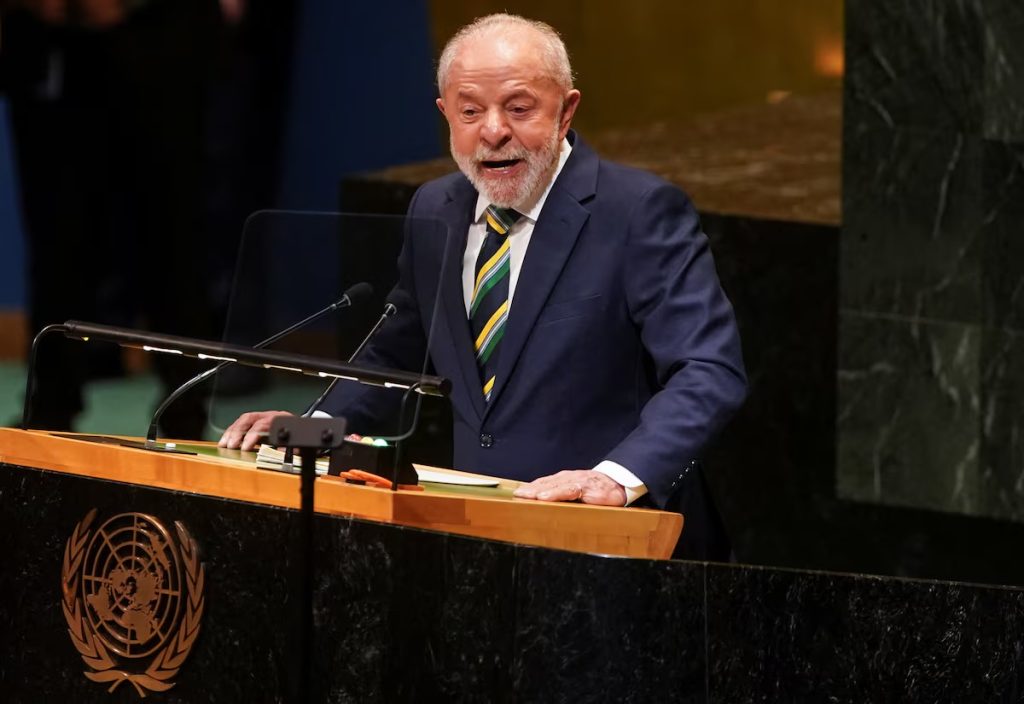Brazil’s $1 Billion Forest Fund Gamble: A Taxpayer Betrayal Amid Scandal and Debt
By Hotspotnews
Brazil is no stranger to scandal, but the latest outrages—plundering pensioners, bleeding state enterprises, and cozying up to China for cash—paint a grim picture of a nation teetering on fiscal recklessness. Yet, in a move that defies logic, President Lula has pledged $1 billion of taxpayer money to a global forest fund, the Tropical Forests Forever Facility (TFFF), announced September 23, 2025, at the United Nations. With retirees robbed, public debt soaring, and foreign loans propping up a shaky economy, this grandiose gesture is not just tone-deaf—it’s a slap in the face to hardworking Brazilians footing the bill.
The INSS pension scandal alone is enough to make your blood boil. From 2019 to 2024, a staggering $1.1 billion was siphoned from the accounts of up to 6 million retirees—many scraping by on minimum pensions—through unauthorized fees funneled to shady associations and unions. Federal Police uncovered forged signatures and complicit INSS officials, leading to the ousting of the agency’s head and the Social Security Minister’s resignation. While a task force promises reimbursements, the elderly are still waiting, their trust in government shattered. And this isn’t ancient history; it’s a fresh wound, with investigations ongoing and public fury at a boiling point.
Then there’s Correios, the state postal service, hemorrhaging $300 million in just the first quarter of 2025, a 115% worse loss than last year. Mismanagement under multiple administrations has left it a financial black hole, with workers facing pay cuts and slashed hours just to keep it afloat. Petrobras, once the crown jewel of Brazil’s economy, remains haunted by the ghosts of the Lava Jato bribery scandal, with a recent $853 million settlement in the U.S. reminding us that its cleanup is far from over. These aren’t just bureaucratic hiccups—they’re systemic failures that drain public coffers and erode faith in governance.
Against this backdrop, Brazil’s public debt is a ticking time bomb. At 76% of GDP and climbing—potentially hitting 92% by year’s end, per the IMF—the government’s fiscal irresponsibility is glaring. High interest rates, now at 15%, make servicing this debt a nightmare, eating up funds that could stabilize pensions or infrastructure. Nearly half the debt is floating-rate, so every rate hike tightens the noose. Add in mandatory spending on bloated social programs, and the deficit’s ballooned to 7.58% of GDP. Brazil’s not Venezuela, but it’s flirting with a slow-motion crisis, propped up by strong exports and reserves that won’t last forever if spending isn’t reined in.
Enter China, Brazil’s new best friend. In 2024, Chinese investment doubled to $4.18 billion, with another $5 billion pledged in 2025 for infrastructure and tech. Sounds great, until you realize it’s not charity—China’s buying influence, securing ports, power lines, and 60% of its soybean supply from Brazil. Historically, $30 billion in loans have flowed from Beijing, and while 2025’s new borrowing is smaller, it’s still tying Brazil’s future to a foreign power with its own agenda. With U.S. tariffs looming, Lula’s leaning harder on China, trading sovereignty for short-term cash. This isn’t survival—it’s dependency dressed up as diplomacy.
So why, in this mess, is Lula committing $1 billion to a global forest fund? Supporters claim it’s “seed money” to unlock $125 billion for tropical forest protection, including Brazil’s Amazon, and that it’s just 0.04% of GDP. But that’s $1 billion of *taxpayer* money—money that could refund defrauded pensioners, shore up Correios, or ease the debt burden. The TFFF’s a multilateral pipe dream, banking on private investors and foreign governments to pony up the rest. If it flops, Brazil’s out a billion with nothing to show but Lula’s green credentials for the COP30 stage in Belém. Even if it succeeds, the benefits are speculative and distant, while retirees and workers suffer now.
This isn’t leadership; it’s grandstanding. Lula’s approval is cratering below 30%, and for good reason—Brazilians see through the eco-posturing to a government that can’t protect its own people from fraud or fiscal ruin. The conservative answer is clear: slash wasteful spending, audit public institutions to root out corruption, and prioritize citizens over global photo-ops. Until Brazil cleans house, every dollar sent abroad is a betrayal of the taxpayers who earned it. Lula’s forest fund might save trees, but it’s burning what’s left of the public’s trust.

